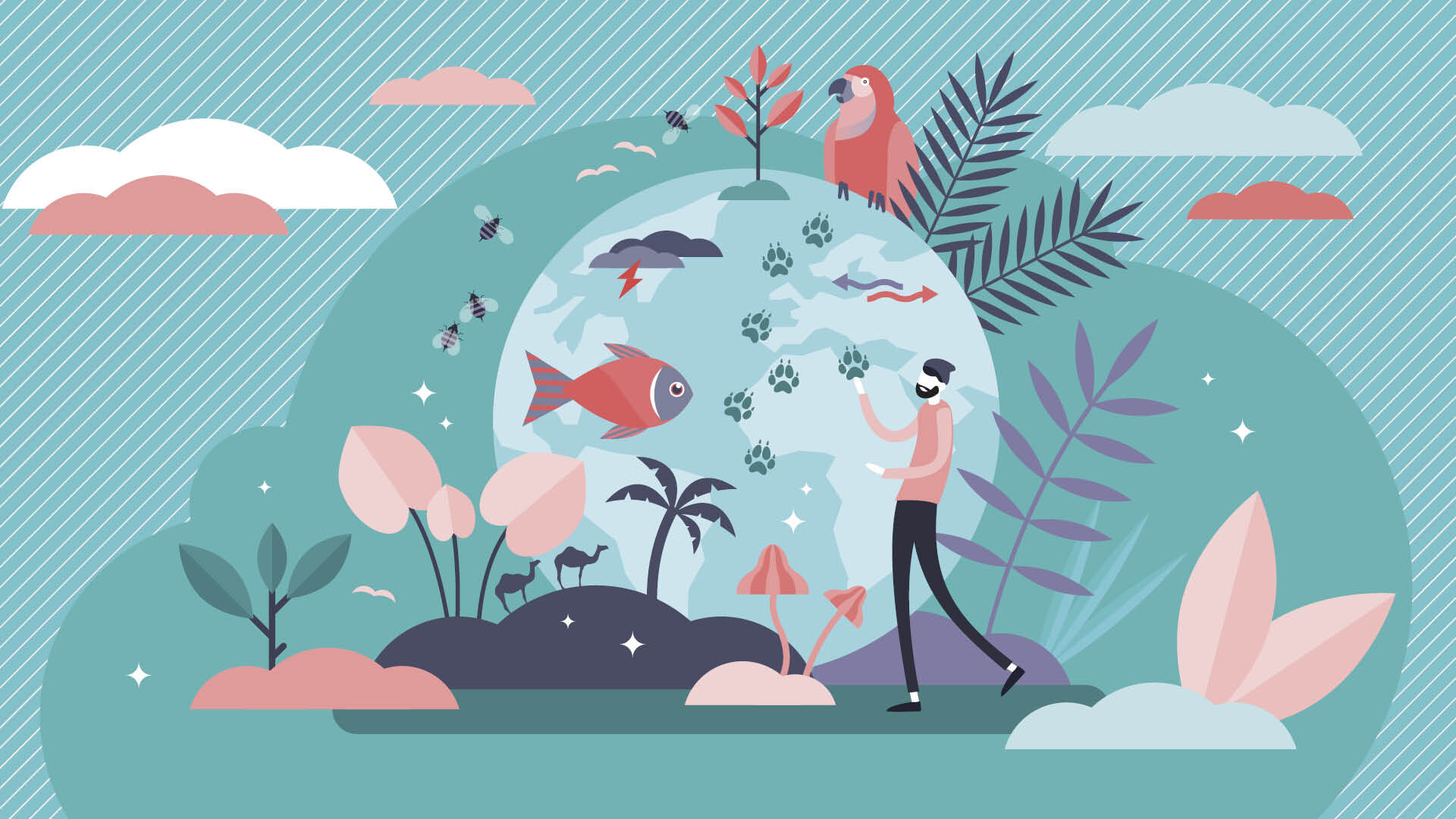
Dr Leigh Corner says we need to address global biodiversity loss with the same urgency and manner of cooperation as the response to COVID-19.
By Leigh Corner
Rotary Club of Plimmerton, NZ
Why am I concerned with the decrease in biodiversity, not just in New Zealand but globally?
We are dependent on the biosphere, that is, all living things on earth, for our air, clean water, and the food we eat.
There is a great diversity of species in the biosphere and they are found in a myriad of ecosystems. The stability of the biosphere and these ecosystems is contingent on the complexity that results from diversity. The greater the biodiversity, the healthier and more stable are the ecosystems. If there is a sudden change in the environment of the communities, the stability may change, and the community may be destroyed.
“We are dependent on the biosphere, that is, all living things on earth, for our air, clean water, and the food we eat. There is a great diversity of species in the biosphere and they are found in a myriad of ecosystems.”
It appears that a single species, Homo Sapiens, may well be causing a current mass extinction of species and instability in the biosphere. We may well be causing the extinction of our own species as we too are dependent on our habitat.
All the ecosystems on earth are at risk from a decrease in species diversity. The losses are primarily due to habitat alteration caused by human activities that include:
- Overpopulation
- Urban sprawl
- Conversion of land for agriculture
- Deforestation
- Mining
- Pollution
- Global warming
An illustration of the risks from the loss of biodiversity is the dramatic decrease in the genetic diversity in agriculture. This has resulted in many monoculture crop environments and the loss of wild, natural strains of edible plants. Ninety per cent of the world’s food supply comes from only 100 crops and three of these – rice, maize and wheat – account for nearly 70 per cent of the calories people derive from plants. The consequences of a pest or disease eradicating one of these crops could result in a massive food shortage.
There are many reasons why, on a selfish human level, we should all value the biodiversity of the earth.
- Moral and ethical reasons. A duty to pass on the same natural world to their children that we have enjoyed. Some argue that species themselves have their own value and right to exist whether humans need them or not.
- Aesthetic reasons – natural beauty enriches our lives.
- Health and stability of the biosphere for the preservation of our species.
- Actual and potential material and economic benefits to people, including new medicines.
- Insurance. No one knows what humans may need in the future.
Let us hope that the human species likes its own company, because at the current rate of species extinction we might be the only large animal species left, if we survive at all.
The COVID-19 pandemic illustrates our vulnerability. However, the development of the COVID-19 vaccines, many and varied as they are, has shown what can happen when there is a universally recognised threat and cooperation between nations and people. These vaccines have been developed with both old knowledge and new, innovative ideas and in a remarkably short time. The key to that success was the dire situation we faced, an element of panic but real cooperation. We need to address species loss with the same sense of urgency.
